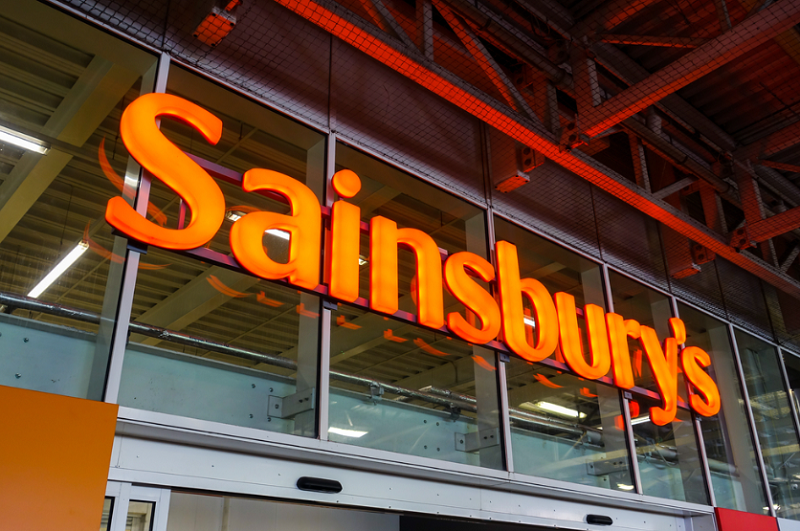Sainsbury’s, one of the most recognized and respected names in British retail, has grown from a small market stall in the late 19th century to a leading supermarket chain with a vast array of products and services. Its journey through history, business innovations, and corporate strategies provide a fascinating look at how a company can adapt to changing market dynamics and maintain a strong presence in the competitive world of retail.
The Origins of Sainsbury’s
Founded in 1869 by John James Sainsbury and his wife Mary Ann, Sainsbury’s began as a small store in the heart of London at 173 Drury Lane. The store focused on selling high-quality, affordable products with a commitment to excellent customer service. This early emphasis on quality and customer care set the foundation for the company’s future success.
Sainsbury’s flourished in the early 20th century under the leadership of John’s son, also named John Sainsbury, who expanded the chain and introduced the concept of self-service shopping. By the 1950s, the company had grown to be one of the largest retailers in the UK, with a network of stores across the country.
Sainsbury’s Evolution and Expansion
Over the years, Sainsbury’s has undergone numerous transformations. In the 1960s and 1970s, the company embraced the shift towards supermarket-style shopping, building large stores that offered a wide variety of food and household goods. The introduction of new product lines, including frozen foods, helped to capture the growing demand for convenience among consumers.
In the 1980s, Sainsbury’s further expanded its offerings by venturing into the realm of non-food products. This was a response to increasing competition from rivals such as Tesco and Asda, which were growing rapidly during this period. Sainsbury’s began to diversify its product range, offering more private-label goods alongside branded products, and expanding its operations into banking and other financial services.
The 1990s saw a major overhaul of the company, as it focused on modernization and technology. Sainsbury’s introduced self-checkout stations, streamlined its supply chain, and implemented the use of digital technology in store operations. The company also invested heavily in its online presence, launching an online grocery delivery service in 1998.
Sainsbury’s Today: A Leading Supermarket Chain
As of today, Sainsbury’s is one of the largest supermarket chains in the United Kingdom, operating over 1,400 stores across the country. It offers a diverse range of products, including fresh groceries, frozen food, clothing, home goods, electronics, and even financial services. Sainsbury’s remains competitive with other major players in the UK supermarket sector, including Tesco, Asda, Morrisons, and Aldi.
In terms of market share, Sainsbury’s holds a significant position, competing closely with Tesco for the title of the UK’s largest supermarket chain. As of recent reports, Sainsbury’s has a market share of around 15%, making it one of the most influential players in the industry.
Sainsbury’s Products and Services
Sainsbury’s product range is extensive, with offerings to cater to a wide variety of customer needs. The supermarket is particularly well-known for its fresh food selection, including fruits, vegetables, meats, and bakery items. Sainsbury’s also has an extensive ready-meal and frozen food range, designed to meet the demands of busy families and individuals seeking convenience.
The company has also placed a strong emphasis on health and sustainability, with many of its products being free from artificial preservatives, additives, and other chemicals. Sainsbury’s offers a growing range of organic and fair-trade products, and it has committed to reducing its environmental impact through various sustainability initiatives. These efforts include reducing plastic waste, sourcing products responsibly, and minimizing carbon emissions.
In addition to food, Sainsbury’s also offers a broad selection of non-food products, from clothing through its TU brand to home goods, beauty products, and electronics. The company’s Sainsbury’s Bank division provides a range of financial services, including insurance, credit cards, and savings accounts, further diversifying its business model.
Sainsbury’s Online Shopping and Delivery Service
Online shopping has become an essential part of the modern retail experience, and Sainsbury’s has been quick to capitalize on this trend. The company launched its online grocery service in 1998 and has continued to develop and improve its digital offerings in the years since. Today, Sainsbury’s offers a robust online platform that allows customers to shop for groceries, non-food items, and even purchase products for home delivery or in-store pickup.
The COVID-19 pandemic saw a surge in online grocery shopping, and Sainsbury’s responded by ramping up its delivery services. The company introduced more time slots, expanded its delivery capacity, and enhanced the shopping experience for customers through improved website functionality and mobile apps.
Sainsbury’s also pioneered the use of “Click and Collect,” which allows customers to order their groceries online and pick them up at a nearby store. This service has been particularly popular among busy consumers who want the convenience of shopping online but prefer to collect their goods in person.
Sainsbury’s Financial Performance
Sainsbury’s has had its share of financial ups and downs, as is the case with most businesses operating in the highly competitive retail sector. In recent years, the company has faced challenges, such as rising food prices, increasing competition from discount retailers like Aldi and Lidl, and changing consumer habits. However, Sainsbury’s has consistently shown resilience and adaptability.
The company’s financial performance has been bolstered by the success of its non-food categories, such as clothing and home goods, which have become increasingly important to the business. Sainsbury’s also benefits from its strong brand image and loyal customer base, which continues to drive sales.
Despite some challenges, Sainsbury’s has remained profitable and maintains a strong presence in the UK retail market. It continues to focus on improving its customer service, investing in new technologies, and expanding its product offerings.
Sainsbury’s Corporate Social Responsibility (CSR) and Sustainability
Sainsbury’s has long been committed to social responsibility and sustainability, with initiatives designed to reduce the company’s environmental impact, promote ethical sourcing, and improve the communities it serves.
In recent years, Sainsbury’s has made significant strides in reducing its carbon footprint and promoting sustainable sourcing. The company aims to achieve net-zero carbon emissions by 2040, with plans to reduce plastic packaging, invest in renewable energy, and reduce food waste.
Sainsbury’s also works closely with its suppliers to ensure that products are ethically sourced, and it has been involved in numerous charitable efforts, including partnerships with food banks, supporting local communities, and promoting healthy eating initiatives.
Challenges and Future Prospects
Like many businesses, Sainsbury’s faces several challenges as it navigates the evolving retail landscape. Increased competition from discount supermarkets, changing consumer preferences, and economic uncertainties due to global factors all pose risks to the company’s continued success.
However, Sainsbury’s has a strong track record of innovation and adaptability, and it is well-positioned to meet the challenges of the future. The company’s commitment to sustainability, its expansion into digital services, and its focus on customer experience provide a solid foundation for growth in the coming years.
Conclusion
Sainsbury’s has come a long way from its humble beginnings in Victorian London. Today, it stands as a pillar of the UK retail industry, offering an extensive range of products, services, and customer-focused initiatives. While the company faces significant challenges in an increasingly competitive market, its resilience, innovation, and commitment to social responsibility ensure that it will remain a dominant force in the retail sector for years to come. As Sainsbury’s continues to evolve, its legacy of quality, value, and service will remain at the heart of its success.











